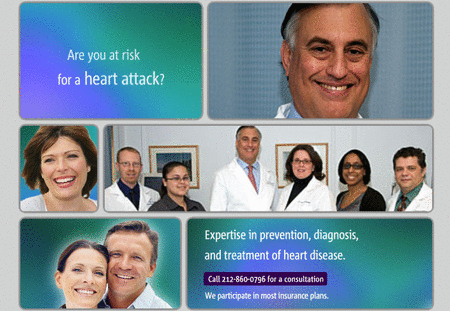Considering the deteriorating living styles of people, and simultaneous rise in the incidence of heart problems amongst them, it has become imperative to know how to stay safe from these medical emergencies.
Our eating and lifestyle habits play a major role in enhancing the chances of cardiac trouble amongst us. Health tips offered by a New York cardiologist can help you stay safe against cardiac problems. What are those tips; let us have a look –
1. Change your diet plan – Food is a major factor that contributes to the poor cardiac health. This is the reason why doctors stress making changes in your eating habits when you are at a risk of such medical problems. An acronym used for one approach is DASH i.e. Dietary Approaches to Stop Hypertension. Some major food products to avoid in this diet include fast foods, red meat, packaged snacks, bakery items, margarines and dairy products, as all of these contain saturated, and Trans fats. These fats increase the chances of CHD (Coronary Heart Diseases)
2. Keep check on your weight – People who are obese, and overweight have higher risks of developing cardiac problems as compared to non-obese people. This is the reason why the best cardiologist’s advise patients to keep their weight under control. BMI or the Basal Metabolic Index is one measure to check your body weight. Doctors have observed that people with a basal metabolic index of 25 or more are at a higher risk of facing cardiac problems
3. Quit smoking – Components like nicotine, tar, and carbon monoxide found in tobacco smoke are considered dangerous for heart health. Smoking can lead to atherosclerosis or the narrowing of blood vessels. So, in order to ensure good cardiac health you need to quit smoking. In fact, passive smoking or second hand smoke can also be a serious problem, making people around you prone to heart and lung diseases
4. Do some exercise – 30 minutes of exercise daily and you can reduce your health risk. Sedentary lifestyle has been a major contributor towards worsening cardiac problems. This is the reason why medical professionals stress upon making some light exercises a part of your daily routine. This will not only ensure safety from various heart problems, but at the same time will bring other benefits like control of weight, and maintain all the body organs in a rigorous state, to name a few.
By employing the above mentioned habits in your life, you can reduce risks of facing life threatening cardiology troubles.
As they say, ‘prevention is always better than cure’, and so if you feel at the risk of facing any of these medical problems, then you must make these habits a part of your daily routine as soon as possible. After all, life does not give a second chance, so why risk it, when all the consequences can be easily avoided with a slight effort from your side!
Our eating and lifestyle habits play a major role in enhancing the chances of cardiac trouble amongst us. Health tips offered by a New York cardiologist can help you stay safe against cardiac problems. What are those tips; let us have a look –
1. Change your diet plan – Food is a major factor that contributes to the poor cardiac health. This is the reason why doctors stress making changes in your eating habits when you are at a risk of such medical problems. An acronym used for one approach is DASH i.e. Dietary Approaches to Stop Hypertension. Some major food products to avoid in this diet include fast foods, red meat, packaged snacks, bakery items, margarines and dairy products, as all of these contain saturated, and Trans fats. These fats increase the chances of CHD (Coronary Heart Diseases)
2. Keep check on your weight – People who are obese, and overweight have higher risks of developing cardiac problems as compared to non-obese people. This is the reason why the best cardiologist’s advise patients to keep their weight under control. BMI or the Basal Metabolic Index is one measure to check your body weight. Doctors have observed that people with a basal metabolic index of 25 or more are at a higher risk of facing cardiac problems
3. Quit smoking – Components like nicotine, tar, and carbon monoxide found in tobacco smoke are considered dangerous for heart health. Smoking can lead to atherosclerosis or the narrowing of blood vessels. So, in order to ensure good cardiac health you need to quit smoking. In fact, passive smoking or second hand smoke can also be a serious problem, making people around you prone to heart and lung diseases
4. Do some exercise – 30 minutes of exercise daily and you can reduce your health risk. Sedentary lifestyle has been a major contributor towards worsening cardiac problems. This is the reason why medical professionals stress upon making some light exercises a part of your daily routine. This will not only ensure safety from various heart problems, but at the same time will bring other benefits like control of weight, and maintain all the body organs in a rigorous state, to name a few.
By employing the above mentioned habits in your life, you can reduce risks of facing life threatening cardiology troubles.
As they say, ‘prevention is always better than cure’, and so if you feel at the risk of facing any of these medical problems, then you must make these habits a part of your daily routine as soon as possible. After all, life does not give a second chance, so why risk it, when all the consequences can be easily avoided with a slight effort from your side!
